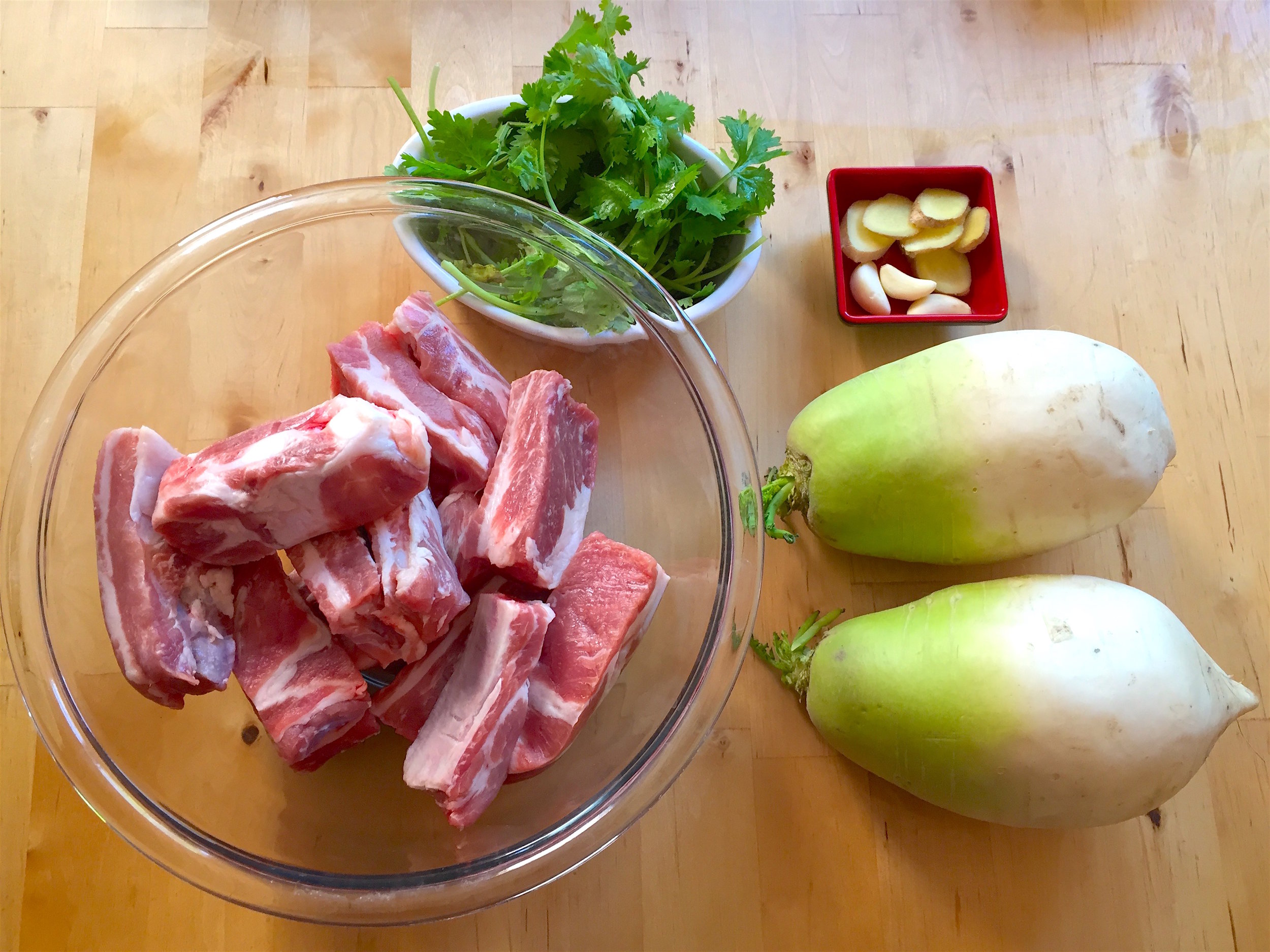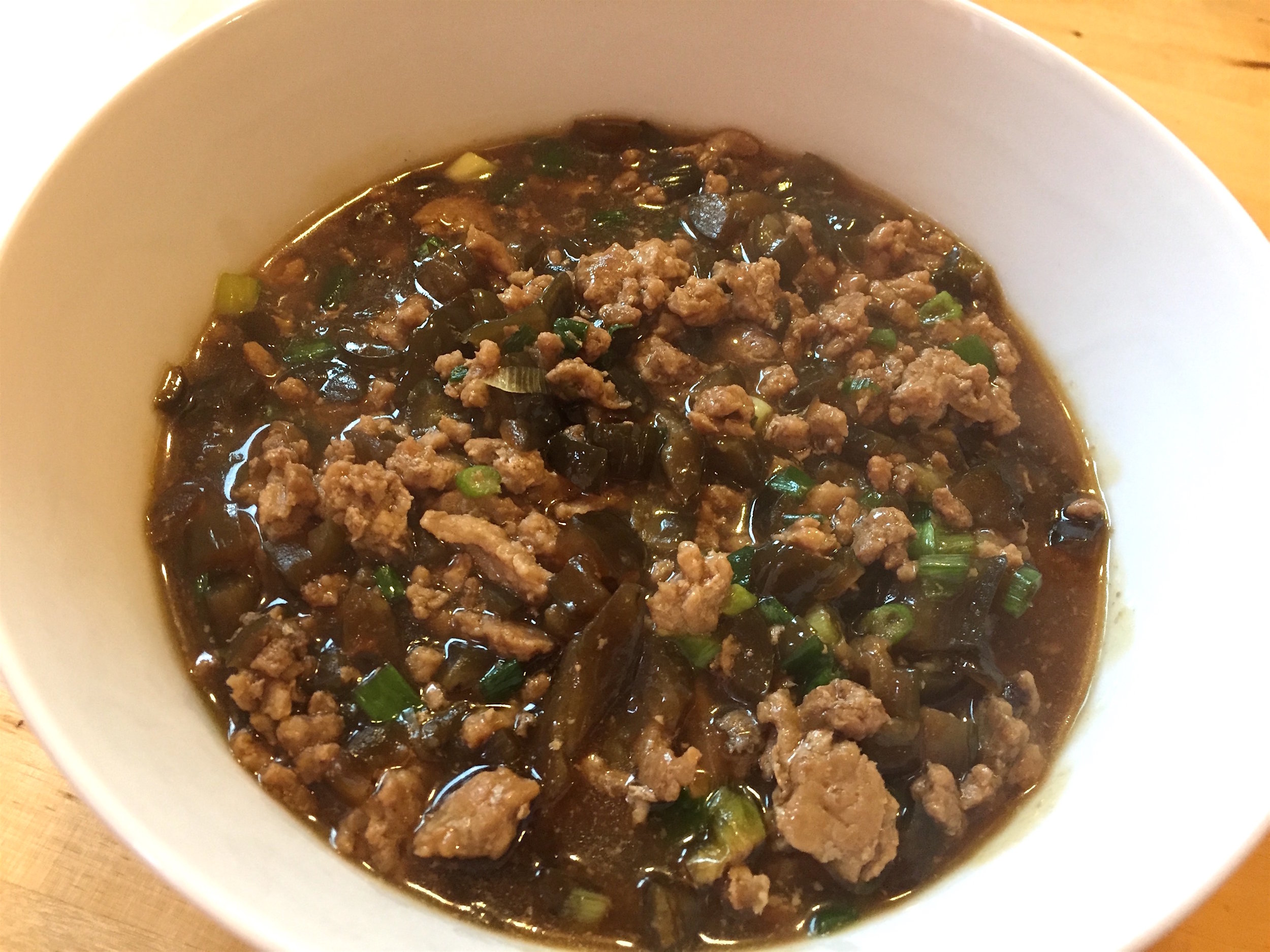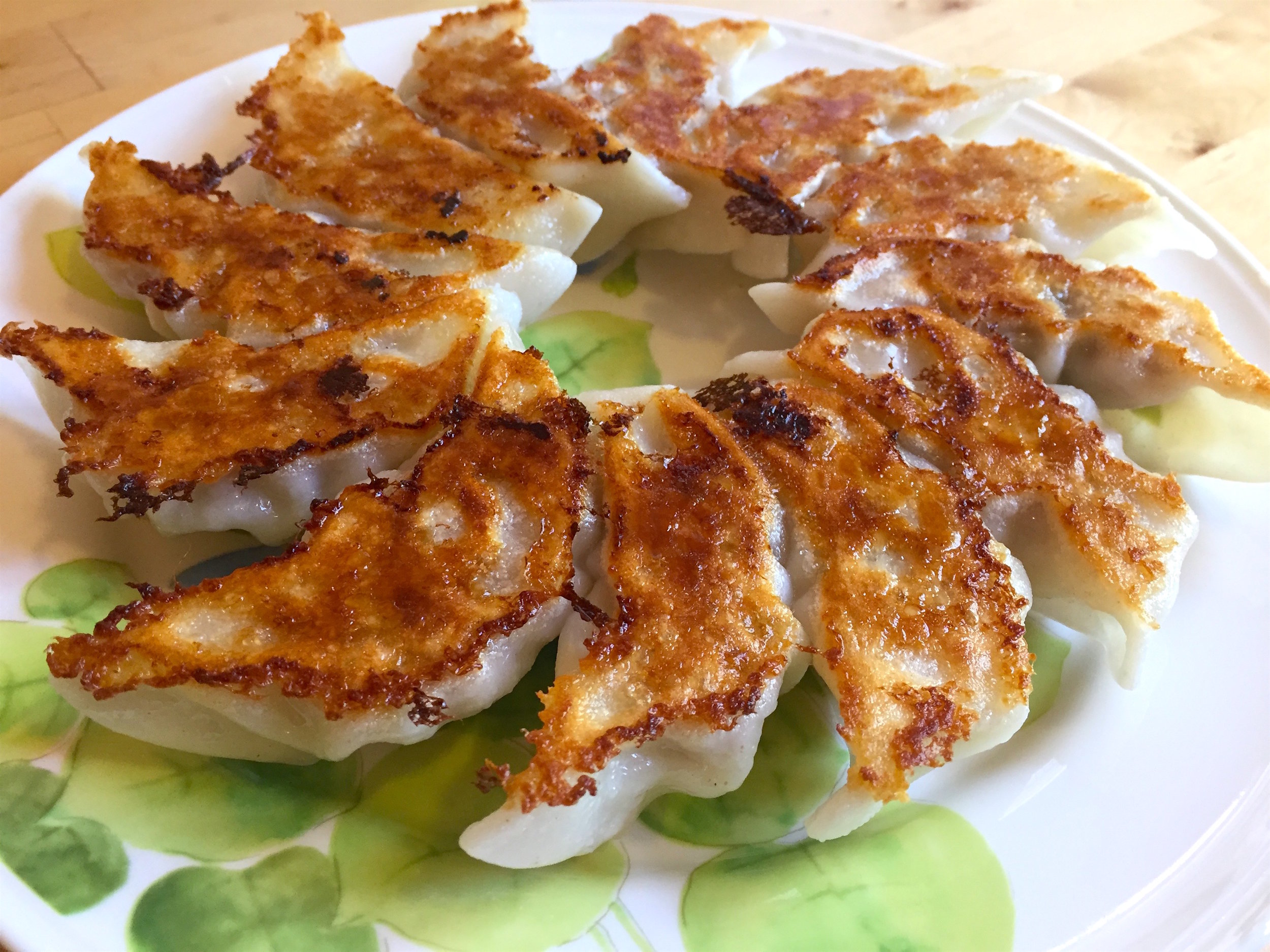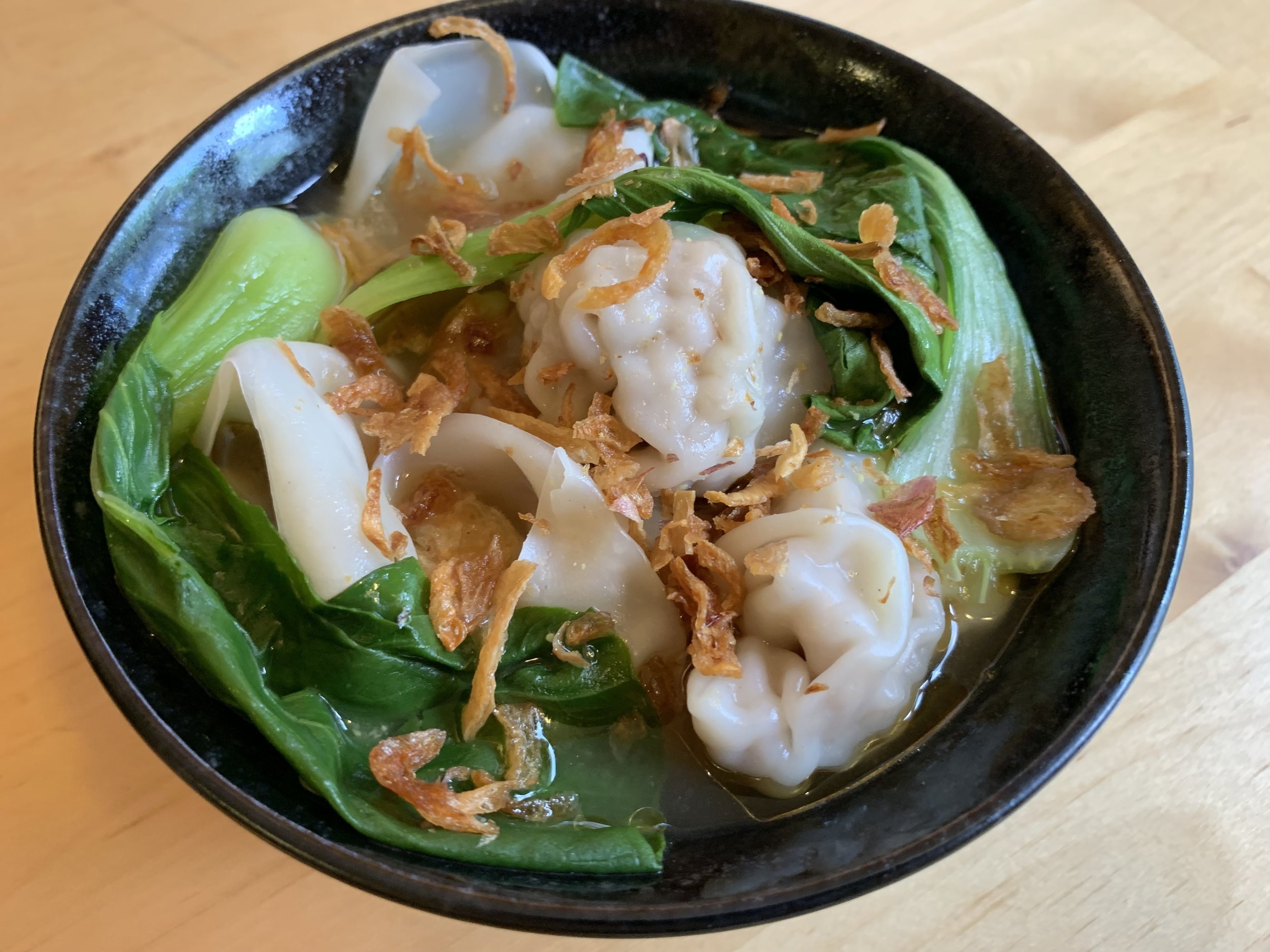Pork and Daikon Soup

排骨蘿蔔湯 (Pai Gu Luo Bo Tang)
Pai gu luo bo tang is a simple, light soup with a delicate, subtly sweet flavor. A classic Chinese soup, pai gu luo bo tang is often served alongside rice and other dishes, or as a comforting home remedy when sick. The soup’s gentle sweetness comes from the daikon radish, a mild winter root vegetable common in East Asian cuisine.[1]
Ingredients
2 lb pork ribs
1½ lb daikon radish
3 cloves garlic
½ inch ginger, sliced
¼ cup cilantro (optional)
salt to taste
The first step to making this soup is to blanch the pork ribs. Blanching the meat helps remove impurities (surface proteins, bone fragments, blood), keeping the final soup clear. It also prevents scum from forming on the surface of the soup as it cooks. To blanch, place the ribs in a pot, cover with cold water, and bring to a boil. Keep the pot at a rolling boil for about 5 minutes. Then, remove the pork ribs to a clean pot, and drain the blanching water.
In the meantime, peel the daikon radish and chop into 1 cm thick pieces. I prefer to use green daikon (sometimes sold as Korean radish) for the soup, as it has a denser flesh than the standard white variety, which stands up better to long cooking.
Add the chopped daikon, garlic, and sliced ginger to the pot with the pork ribs, and cover with cold water, and bring to a gentle boil. Simmer the soup, covered, for three hours.
The daikon should be very soft, and the pork should be falling-off-the-bone tender. When the soup is done to your liking, salt to taste. Chop the cilantro and add it just prior to serving.
Substitutions
You can speed up the simmering step dramatically by using a pressure cooker—under pressure the soup can be finished in about half an hour. Alternatively, the low and slow nature of this soup makes it easy to prepare with a slow cooker.
Other cuts of pork can be used in this soup—generally stewing cuts work well, such as pork shoulder. If you choose to use pork shoulder, be sure to source some pork bones as well to help build body in the broth.
Carrots pair well with daikon, and work well in this soup. Shiitake mushrooms can also be a welcome addition.
Some traditional preparations also call for dried scallops, an ingredient which adds a savory note to the broth. If you are using dried scallops, soak them in water for 10 minutes or so, then add them with all the other ingredients to the pot after the blanching step is complete.
[1] Daikon comes from the Japanese name for the vegetable (大根), which literally translates to “big root.” In most East Asian Languages the terms for radish, turnip, and carrot are interchangeable, which leads to a great deal of confusion when translating.
Recipe
Prep Time: 15 min Cook Time: 3 hr Total Time: 3 hr 15 min
Difficulty: 1/5
Heat Sources: 1 burner
Equipment: stock pot
Servings: 8
Ingredients
2 lb pork ribs
1½ lb daikon radish, peeled and chopped
3 cloves garlic
½ inch ginger, sliced
¼ cup cilantro (optional)
salt to taste
Instructions
1. Place the pork ribs in a pot, cover with cold water, and bring to a boil to blanch them. After boiling for about 5 minutes, remove the pork pieces to a clean pot and drain the water.
2. Add the garlic, ginger, and daikon to the pot, cover with cold water, and bring to a boil.
3. Simmer, covered, for 2-3 hours, until the pork is tender and the daikon is soft.
4. Salt to taste, and add chopped cilantro immediately before serving.










